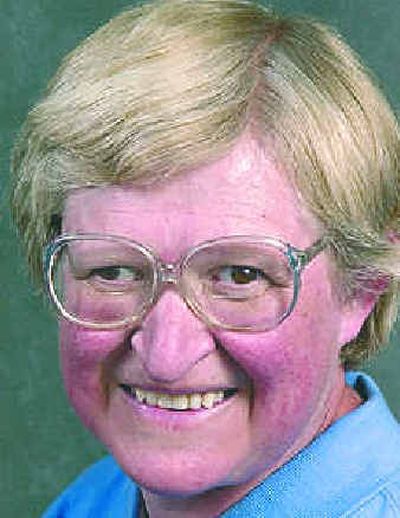Garden proceeds can help charities

Seventeen hundred pounds in four hours. That was the amount of fresh produce the Valley Food Bank put into food boxes for clients on a recent Wednesday. Sadly, the food bank was open for five hours that day. That meant that there weren’t any fresh vegetables left for folks who came that last hour.
According to Barbara Bennett, the food bank’s executive director, this wasn’t an isolated event. “Our client numbers are still rising and are up at least 5 percent from last year. I don’t know from one week to the next what to expect.”
It’s the same story over at the Women’s and Children’s Free Restaurant. “I have to go out and buy produce at times to meet demand, ” says Marlene Alford, head chef for the restaurant’s from-scratch twice weekly dinners. Demand is so strong that the restaurant added a Friday takeout night so clients would have a meal over the weekend.
There is some light at the end of the area’s long, dark economic tunnel, but more help will be needed for the foreseeable future.
So what has all this got to do with gardening? Everything. Fresh produce comes from gardens. Gardens get planted every spring just about now. You, dear readers, are the gardeners that plant them.
Spokane’s Plant a Row for the Hungry program would like to challenge all the vegetable gardeners in the area to join the effort to grow and donate at least 60,000 pounds of fresh produce and fruit this gardening season. Last year, you came through with 36,965 pounds. In 2002, the figure was 15,400 pounds.
Almost any vegetable or fruit is welcome, but sturdy vegetables that are commonly available in the grocery store are best. Each pound yields four servings of high-quality calories, vitamins and minerals.
Get the kids involved by challenging them to a little friendly competition to grow the most carrots.
Plant a Row for the Hungry, or PAR, is sponsored locally by the Inland Empire Gardeners and nationally by the Garden Writers Association. The goal of the program is to encourage home gardeners to make a difference in their communities by growing the vegetables and fruits that aren’t always on the grocery lists of people on limited incomes.
To help you get started, PAR and the Inland Empire Gardeners will be hosting information booths at several local gardening events in the next few weeks. We will be handing out lists of food banks participating in the program, seeds to get you started and lots of good advice on how to grow a garden.
Look for us at the Inland Empire Garden Club booth at our first event, the Garden Expo on Saturday at Spokane Community College, 1810 N. Greene St., from 9 a.m. to 5 p.m.
On May 15 and 16, we will be at the Blooms on the Bluff, a new garden festival at Green Bluff. Look for the booth at the Harvest House, 9919 E. Green Bluff Road, between 9 a.m. and 4 p.m.
You can make a difference by sharing your harvest. “We appreciate all the effort Spokane gardeners have gone to, to bring in fresh produce,” says Bennett. “The need is still great and the donations make a huge difference to our clients.”
Calling all gardeners!
It’s common knowledge that most gardeners in the Inland Northwest have to translate gardening information written for the other side of the Cascade Mountains into terms that match our style of gardening.
Well, no more! The Master Gardeners of North Idaho will present the 2004 Inland Northwest Master Gardener Conference on June 18 and 19 at North Idaho College in Coeur d’Alene. Best of all, they are inviting all Inland Northwest gardeners to join them. This is the first event of its kind in the region.
The conference agenda includes numerous talks on a wide range of topics given by some of our region’s best gardeners and garden experts, demonstrations of gardening techniques, garden and nursery tours and a chance to make some new friends and share experiences about growing plants here.
Topics include plant propagation, organic gardening, perennial gardens in the Inland Northwest, greenhouses, herbs, using native plants, integrated pest management, soils and insect diagnostics. There will be demonstrations on raised and covered beds, pruning techniques, developing hanging baskets and creating topiaries.
At the Friday evening banquet, Toni Fitzgerald, Spokane County Extension educator, will speak on “Plants of the Lewis and Clark Expedition.”
The registration fee for the conference is $40 before May 15 and $50 after that date. Walk-ins on the days of the conference will be accepted on a space-available basis. The Friday evening banquet is $25. A limited number of on-campus lodgings in NIC dorms are available.
For more information and registration forms, please go to www.sandpoint.org/ bcmastergardeners. The registration deadline has been extended to May 15.